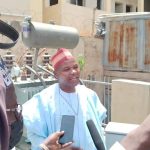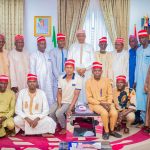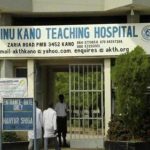Huzaifa Kofar Mata
Education in northern Nigeria is considered an entry point to empowerment, yet for most girls in rural areas like Labunawa, this remains a distant dream—hindered by infrastructural decay, a poorly maintained community primary school, and a lack of supportive policies and funding at the state level.
Despite significant investments in education, Kano still records only 46% literacy among girls, compared to 73% among boys, according to the Nigeria Digest of Education Statistics. This report examines how poverty, combined with social and infrastructural barriers, limits educational opportunities for girls in Labunawa and other communities in Kano.
Over the years, the education system in Kano State has witnessed a steady decline due to insufficient support from the government and other stakeholders, including parents and caregivers. At the heart of these challenges lies girl-child education, which requires special attention—not only to ensure girls receive an education but also to empower them to create transformative change in their lives and communities.
Governor Abba Kabir Yusuf recently declared a state of emergency in the education sector to improve school infrastructure. Hundreds of classrooms are being renovated and furnished with desks and chairs to address the sector’s deepening rot—but Labunawa remains left out.
“I wanted to be a doctor so I could treat my mother when she’s sick,” whispered six-year-old Hafsatu Ado, her eyes filling with tears. Her voice barely rose above the wind rushing through the broken windows of her ruined classroom at Burdugu Primary School. What was once a place of hope now mirrors her fading dream.
Labunawa, a remote community in Baburi Ward, Tudun Wada Local Government Area of Kano State, tells a story of prolonged neglect. What stands out isn’t just the decaying infrastructure but the quiet suffering of its people—cut off, underserved, and unheard.
The most urgent challenge, locals say, is the collapsed road network. When it rains, the only road leading into the community becomes a muddy death trap.
“In the rainy season, we are stuck here. No car or motorcycle can pass. If a woman is in labor at night, we just pray she survives,” said Ya’u Muhammad, a resident who has seen too many close calls turn into tragedies.
Healthcare is just as distant as the road is impassable. The nearest facility is miles away—a journey many in the community cannot make in time.
“We have lost many women because we could not get them to the hospital in time,” Ya’u added, his tone heavy with grief and exhaustion.
Education has nearly disappeared. Burdugu Primary School, built in 1976, is now little more than a ruin—no roof, no doors, no chairs, no books. Parents are too afraid to send their children into a structure that could collapse at any moment.
“I attended this school in 1976 when it first started. Today, my own children can’t even sit in what is left of it,” Ya’u recalled.
Floods destroyed the only Islamiyya school years ago. It was never rebuilt. Now, no child in Labunawa—not even the determined Hafsatu—attends any school at all.
Surrounding communities like Doka, Unguwar Ganji, and Raya face the same fate: no schools, no health centers, contaminated water, and roads that have cut them off from the outside world.
In Labunawa, even clean water is a daily struggle. Children trek long distances under the hot sun just to find water—often from unsafe sources.
But the people of Labunawa are not asking for luxuries. Their plea is simple: a road that connects them, a clinic that serves them, water that doesn’t kill them, and schools where dreams can grow—not die.
All efforts by Kano Times to reach the Tudun Wada Local Government chairperson, Hajiya Sa’adatu Salisu Soja, for comment on the situation in Labunawa were unsuccessful.





